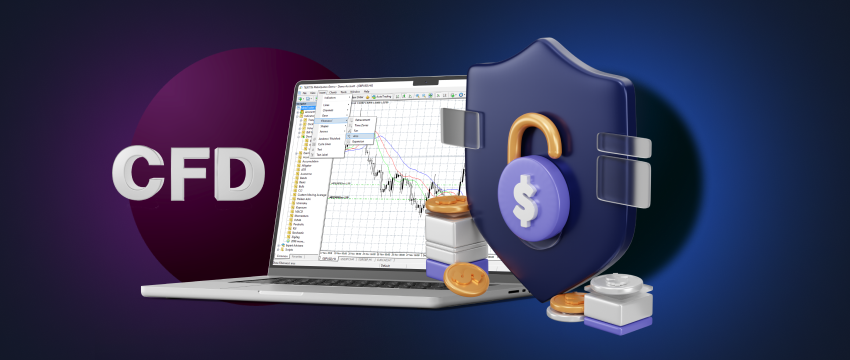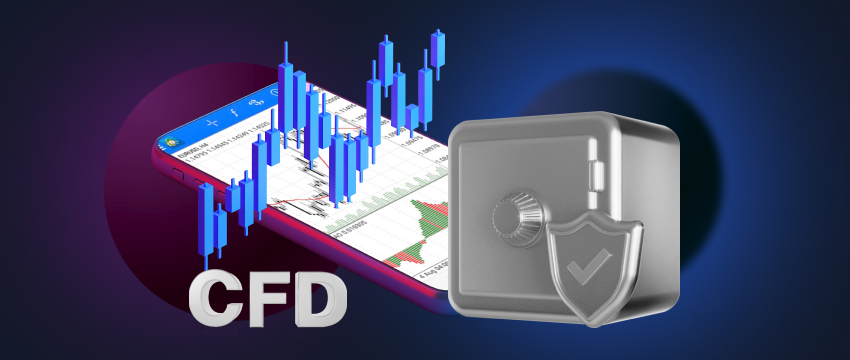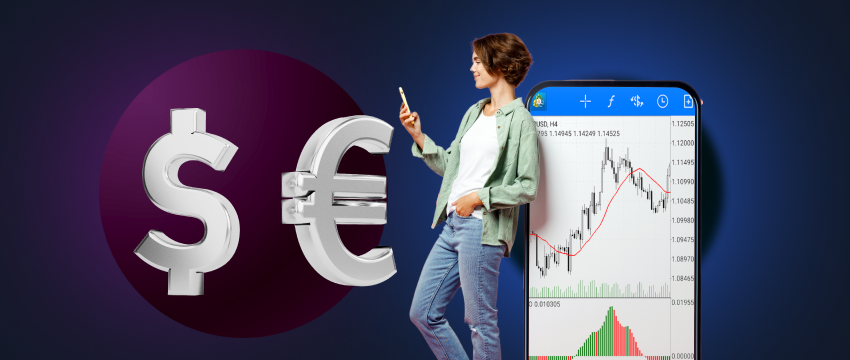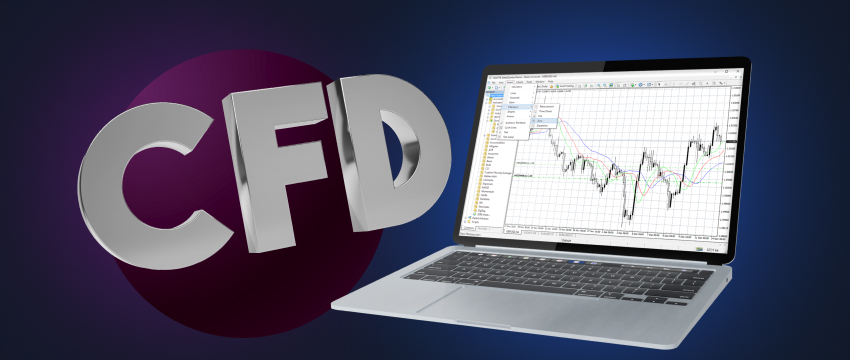It’s a well-known fact that CFD trading is inherently risky. The potential to lose a lot of money is high, particularly if the risk is not managed effectively. Part of that risk includes your choice of CFD broker.
Let’s not forget, that a CFD (contract for difference) is essentially an agreement that you’ll be entering into with a broker. This means picking the right one is key to safeguarding your capital.
So, instead of answering the question of whether CFD brokers are reliable, it’s more a case of what are the criteria for picking a CFD broker that’s right for you.

Criteria for choosing a CFD broker
There are many ways to choose a CFD broker that is best suited to your needs. Let’s jump into some of the most important:
1. Is the CFD broker regulated?
Probably one of the most important questions to ask is whether a reputable financial authority regulates the CFD broker. Remember, you will be committing considerable funds to trades.
A regulated broker instills a sense of safety, reliability, and security. This is because they are obliged to adhere to strict regulations and financial standards to conform to relevant regional directives.
2. Does the CFD broker offer adequate customer support?
Trading can become complex. Challenges arise and issues may be encountered. It’s in those moments that the customer experience becomes vital to ensure optimal trading outcomes.
So engage with the CFD broker. Establish how they are accessible. Is it by email? Do they have a live chat option? Reach out and ask questions to determine the speed at which they respond, and their level of knowledge and expertise. The last thing you want is a broker who ignores queries or takes days to respond.
3. What trading platform do they offer?
Probably one of the most vital parts of choosing a broker is establishing what online trading platform they offer.
The platform will play a massive role in determining your overall trading experience afterall so picking wisely is super important. T4Trade for example offers the MetaTrader 4 (MT4), arguably one of the most popular trading systems in the world.
Utilised by traders globally, the platform offers cutting-edge trading tools and an ease of use that’s second to none.
Testing the trading platform of CFD broker
If you want to properly ensure the MT4 is the right pick, consider signing up for a demo trading account to test it out for yourself. Once you register, you can implement a variety of trading strategies, no matter how complex, using virtual funds.
You can enter and exit trades and journal outcomes without putting your own capital at risk. You can also get a good understanding of technical analysis and even algorithmic trading, to give you a comprehensive insight into what using the platform will be like.

4. Does the CFD broker offer the financial instruments you want to trade?
You want to ensure that the CFD broker gives you access to the range of underlying assets you want to trade. It would make zero sense to sign up with a broker who doesn’t offer you your favorites. So, visit their website and research the markets you’ll be able to enter before making a decision.
5. Do they have a variety of trading accounts?
When choosing a CFD broker, you want one that offers a trading account that aligns with your budget, risk tolerance, expertise, and goals. Ensure you’ve double-checked the account types and make sure that they meet your specific requirements.
6. Spreads and speed of trade execution and funds withdrawals/deposits
Investigate what type of spreads the CFD broker offers, are they competitive enough to increase the likelihood of making a decent profit?
Additionally, try and establish the speed and ease at which you can execute trades, as well as withdraw or deposit funds from and to your trading account.
7. Do they offer resources to boost your skills?
Ultimately, you also want a CFD broker that has your best interests at heart. This means a broker that’s not only there to answer questions but that also provides the educational resources needed to make you a more skilled trader. So what type of resources are we referring to? Well, let’s take T4Trade’s Academy as an example. Here, traders can get their hands on a bunch of learning material to widen their scope of knowledge. This ranges from webinars, seminars, e-books, videos, and even Live TV for daily Monday-Friday commentary.
Additionally, traders can also consume T4Trade blogs, aimed at all levels of expertise. In addition to these, T4Trade also offers other useful tools like an Economic Calendar and Trading Calculators. Finally, traders can also learn more about trading psychology through T4Trade.
Let’s not forget that emotions have a massive impact on trading, oftentimes leading to poor financial decision-making. Knowing how to manage one’s feelings and emotions is fundamental to trading success so learning how to manage these is crucial.
Why CFD trading?
Traders may opt for CFD trading for various reasons. Let’s discuss some of them:
- One reason is that this type of trading typically involves high leverage, allowing traders to control larger positions with less capital and potentially increase profits. However, this also means that the potential for amplified losses rises significantly.
- Another reason is that CFD trading commonly provides access to a variety of markets, such as currencies, stocks, indices, commodities, and metals. This not only broadens trading opportunities but also enables traders to diversify their portfolios.
- Additionally, CFD trading allows traders to take advantage of both upward and downward markets by either selling short on declining prices or buying long on increasing prices.
- Furthermore, CFDs are commonly used for hedging against potential losses.
- Lastly, CFD trading is favored for its lower costs compared to traditional trading, with minimal or zero fees for trade execution.

Just how risky is CFD trading?
Trading CFDs carries a high risk of significant capital loss, mainly due to leverage. Financial markets are extremely volatile, with asset prices experiencing abrupt and unpredictable fluctuations.
Unexpected movements in positions can lead to larger losses when leverage is involved. Therefore, it is crucial to implement effective risk management strategies to safeguard your funds.
Risk management strategies
- Protect your funds by adopting stop loss or take profit orders. Alternatively, consider your position size to ensure that it aligns with your budget or risk tolerance. Be mindful so as not to put all your money at risk.
- Be cautious of overtrading, especially if you’ve decided to use leverage. While executing larger trades may seem appealing, they shouldn’t come at the expense of your budgetary constraints.
- Stick to your trading plan which should lay out with specificity the rules by which you’ll trade.
- Learn how to manage your emotions so you don’t engage in any form of excessive behaviour that could jeopardise your funds.
- Remember that CFDs involve involve entering a contract with a broker, increasing your exposure to counterparty risk if the broker defaults on its obligations. Therefore, it’s crucial to select a reputable CFD broker.
- Ensure you always keep learning so that your skills remain current.
In summary, it’s clear that CFD trading offers traders a variety of trading opportunities. At the same time, it also involves a definitive level of risk related to leverage use, market volatility, and more.
Choosing a regulated CFD broker that will help you manage these challenges is crucial. So do your homework, conduct your due diligence, and pick wisely.
Disklaimer: This material is for general informational and educational purposes only and should not be considered investment advice or an investment recommendation. T4Trade is not responsible for any data provided by third parties referenced or hyperlinked in this communication.




